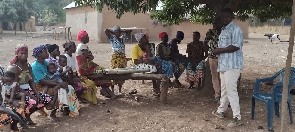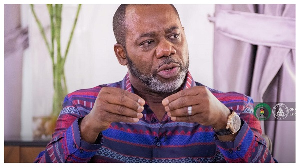In the rural areas of northern Ghana, both men and women farm the lands. However, due to traditional norms, men are the only ones who can legally own the lands. As a result, the income from farming goes only to the men, leaving women with no option but to gather shea nut fruit from the shea trees, which is known as "Women's Gold" in the Northern Region.
But there's a major challenge that these women face. They are exploited by middlemen, who pay them very little for their shea nuts. As a result, these women have started cutting down shea trees to burn as charcoal, which can be sold to supplement their household income. They use the money to pay for their children's school fees and provide health and medications for their families.
This practice of cutting down shea trees for charcoal has become a major threat to the endless fight against climate change. Thousands of shea trees are being cut down every day for charcoal, leading to deforestation and loss of habitat for wildlife. This poses a serious threat to the environment and the livelihoods of many rural communities in northern Ghana.
The situation is dire, but there is hope. Green Africa Trade Engagement, funded by WAICA Reinsurance as part of WAICA Reinsurance annual CSR project, is implementing a project that aims to empower rural women in the shea nut value chain to be financially independent while ensuring environmental sustainability. The goal of the project is to enable rural women to access the international shea market industry by helping them produce high-quality, traditionally processed shea nuts as local women's groups located in Northern Ghana.
The team behind the project aspires to help the women's groups carry a reputation in the international shea market place for delivering high-quality, traditional shea nuts at a competitive price. The produced shea nuts can be used for cosmetic products such as soap, body lotion, moisturizer, and balm, as well as edible products such as cooking oil.
But the project's ultimate goal is to ensure environmental sustainability through the preservation of shea trees. This has become very necessary because many rural poor have resorted to cutting down shea trees and burning them as charcoal to meet their immediate needs in many parts of Northern Ghana.
The Green Africa Trade Engagement team, aims to motivate the rural poor to desist from this practice once they begin to experience the long-term benefit and value of the tree. Additionally, they can be encouraged to not only protect the trees but to plant more, thus preserving and improving the environment.
The project implemented by Green Africa Trade Engagement is a beacon of hope for rural women in Northern Ghana. It not only empowers them to be financially independent, but it also enables them to be environmentally conscious. The project is a testament to the fact that social and environmental impact can go hand in hand.
WAICA Reinsurance's contribution to this project highlights the importance of socially responsible organizations in improving Environmental, Social, and Governance (ESG) footprints in Africa. The project's success will not only benefit the rural communities in Northern Ghana but also serve as a model for other regions facing similar challenges.
Climate change is a global crisis that requires collective efforts to address. However, we cannot achieve our goals if we leave behind the most vulnerable communities, especially women. The fight against climate change is useless if women are kept poor. Empowering them to be financially independent while ensuring environmental sustainability is crucial to achieving our goals. The project implemented by Green Africa Trade Engagement and funded by WAICA Reinsurance is a step in the right direction.
Opinions of Wednesday, 1 March 2023
Columnist: Joseph Atchulo



















